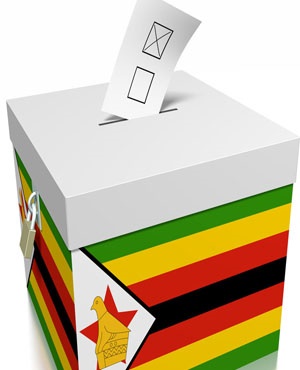In this new series Magari Mandebvu explains the constitutional provisions that govern the holding of elections in Zimbabwe. This supreme law of the land details exactly how the government of they must seek a mandate to govern from the people. We all need to be aware of just how this is supposed to done.
Source: What the Constitution says about elections – part 1 – The Zimbabwean
The big question we should all be considering for the next year or so is “to vote or not?”
One thing is clear; we have seen so many dirty tricks we all have good reason to ask that question. Predicting the next trick they will use is not easy. You must admit they are experts at finding loopholes, ignoring what they find inconvenient and inventing a few tricks. Or maybe we should give the credit for that to their Israeli cronies.
But reminding ourselves of the past problems may not be the most helpful way to approach another dreaded election. When a friend gave me my first lesson on riding a bicycle, he warned me not to think of how I might fall, but to keep my attention on where I wanted to go.
We all need to heed that sound advice. Where do we want to go? How would we want elections to be organised? We were asked that question in 2013 and the Constitution that was written took more notice of what we said than the previous one did. It is not perfect, but it makes a good enough starting point.
If you want to know all that the Constitution says, you can buy a copy from the Government Printers: ask for the Constitution of Zimbabwe (No 20) Amendment Act, 2013 or you can download it from the internet from the website https://www.veritaszim.net.
Just for a start, I will try to present the sections concerned with elections and give a bit of comment and explanation. I am not an academic lawyer, but I have rubbed shoulders over quite a long life with some sharp legal brains and other troublesome people. If my humble effort provokes someone better qualified than me into action, I’ll be delighted. Having made my excuses, I’ll start.
The main provisions are in Chapter 7, titled Elections. This is divided into sections, numbered 155-162.
Starting from the beginning, section155 deals with Principles of the electoral system, under two subheadings.
The first reads;
(1) Elections, which must be held regularly, and referendums, to which this Constitution applies must be—
(a) peaceful, free and fair;
(b) conducted by secret ballot;
(c) based on universal adult suffrage and equality of votes; and
- free from violence and other electoral malpractices.
Clause (a) states general principles, which will be enlarged on in subsequent clauses, but we all recognise when they are broken. We know how often elections have not been peaceful. To put it mildly, we all have serious doubts about how villagers brought to the polls and directed by their chief can be free to select a candidate of their own choice, and we have heard stories about police and army personnel being ordered to use the postal ballot and to fill in their ballot papers under the eyes of their officers. It is clear that an election that is not peaceful or free cannot be fair; there are more provisions in the next few clauses on how a fair election can be conducted.
(b) conducted by secret ballot. Army and police officers please note. And if a chief out of the goodness of his heart, provides transport for his people to go to the polls, he and his ‘police’ should not go near the polling station while their villagers are voting. There are other possible abuses which are covered in later clauses. Remember that your vote is your secret; that means that you must be able to control who you tell or allow to see how you vote. Nobody should see where you put your X, but you can ask someone you choose for help if you have difficulty reading the ballot paper, whether you never learnt to read or just have bad eyesight. At the last election, an important candidate was not included in the list displayed on the wall at our local polling station, I asked if his name would be on the ballot paper. Some officious person rushed to ‘help this confused old man’ and I told him I did not need help. But your secret is yours to share with whoever you like. Tell a polling agent of your party if you want to save them the trouble of reminding you later, but nobody can force you to do that if you don’t want.
No law forbids you to take a photograph of your ballot paper, which provides valuableevidence if you do want to share your secret. But if anybody tries to interfere with you doing this, tell him or her loudly enough for everyone to hear ‘Get out of this booth. My vote is my secret’. That has worked. If s/he is a cop, ask for their name, rank and force number, so that you can report their offence against the Electoral Act.
Clause (c): based on universal adult suffrage and equality of votes; the polling booth is like a dentist’s surgery, everyone is equal there and is expected to observe the same rules and have the same right to any help they may need.
Clause (d): free from violence and other electoral malpractices. We need to resist the slightest hint of violence, even aggressive talk, and I feel uncomfortable about the heavy police presence we often see at polling stations. There is no need for them to be inside the polling station. There will be more about other ‘other electoral

